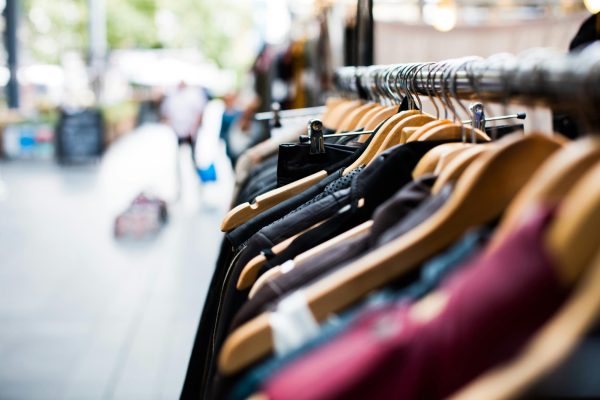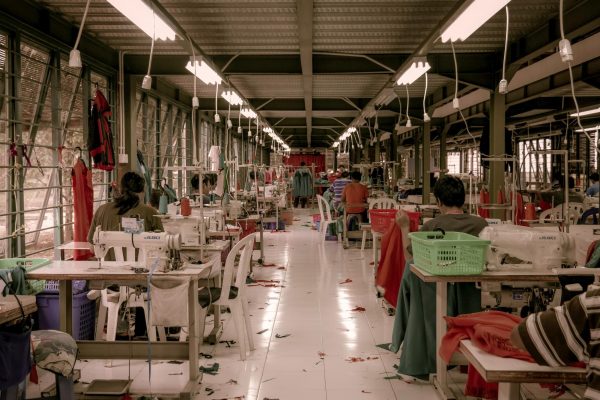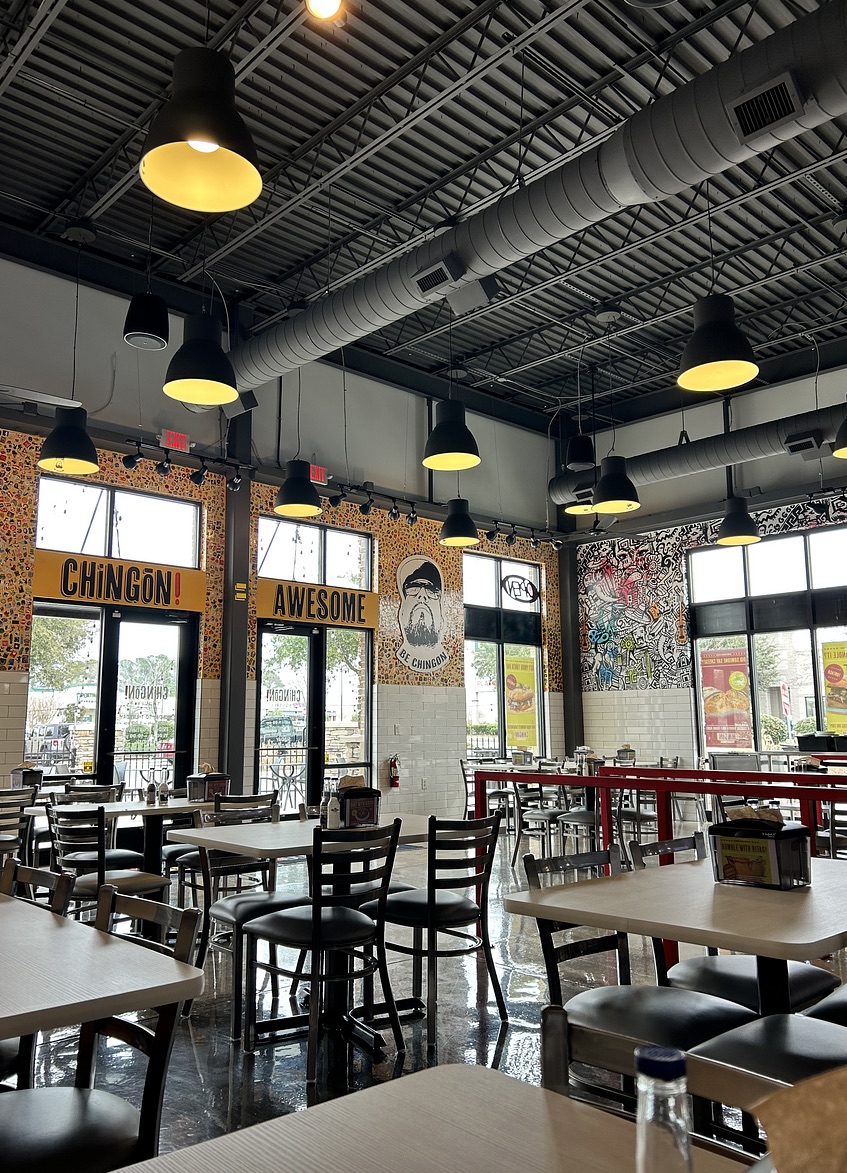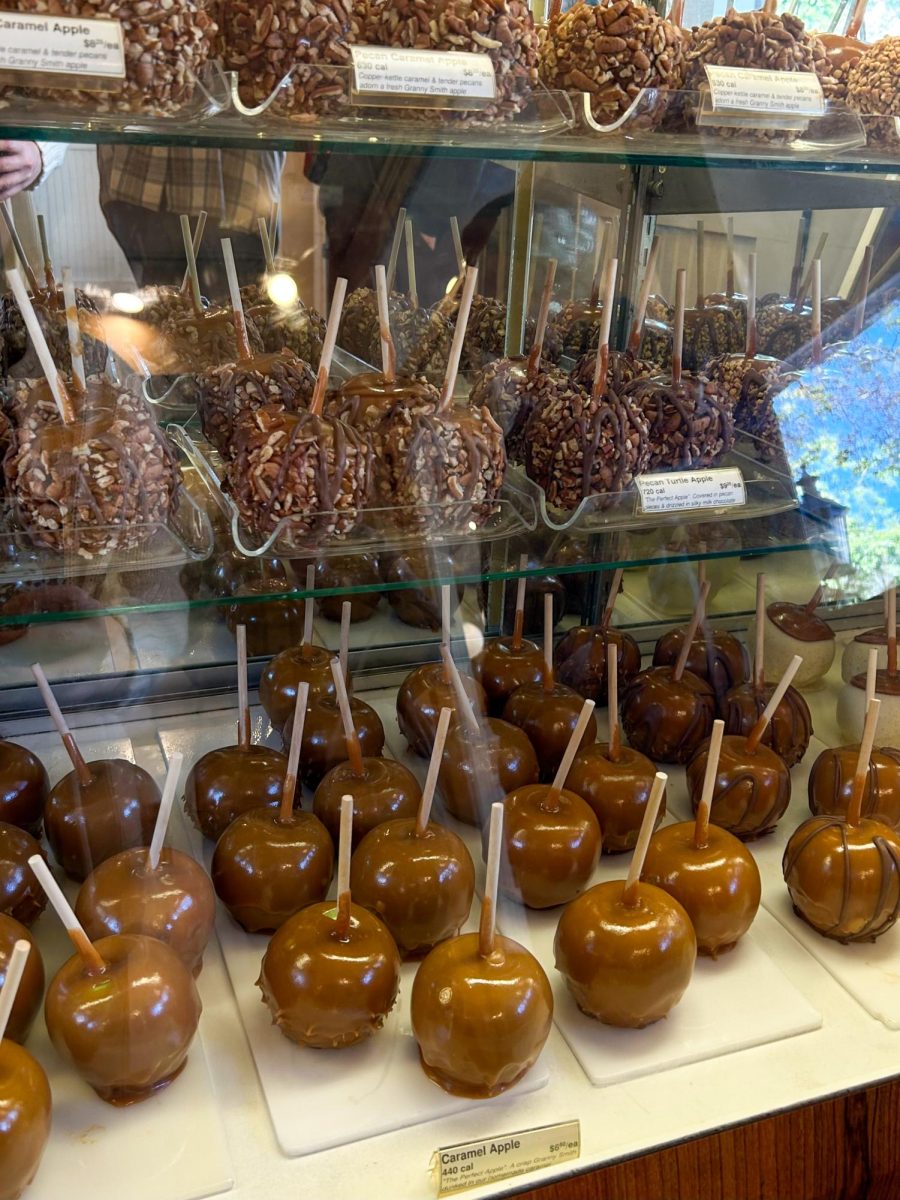
Fashion is a form of self expression and identity. Fashion is displayed everywhere and is worn in different settings, such as school, work, parties and casual wear. With all of these different settings, fast fashion is the go-to for buying affordable clothing to keep up different styles and trends. However, there are consequences to the fast fashion world.
Fast fashion is low-priced clothing manufactured quickly to keep up with recent fashion trends in retail stores. Some popular companies who sell fast fashion clothing are Zara, H&M, GAP, Forever 21, Fashion Nova and TopShop. The concept of fast fashion is to stay on top with trends but not to be an outfit repeater.
The mass production of textiles did not start in the United States until the Industrial Revolution advancements in technology. With the increase of textiles, more dressmaking shops open to the middle class. Sweatshops started to emerge, along with safety concerns, such as the New York’s Triangle Shirtwaist Factory in 1911.
By the 1960s and 70s, clothing trends started to be created and fashion is a form of expression. In the late 1990s and early 2000s, low-cost fashion reached its peak with the addition of online shopping. Fast fashion companies, like Zara and H&M, analyzed top fashion trends and recreated them at a lower cost.
Shein is an online fast fashion shop that produces clothing for a low-cost. This company is climbing in sales due to micro-celebrities, social media influencers and bloggers reviewing products to increase their sales. As a result of Shein becoming so popular, the company leaves about 6.3 billion tons of carbon emissions a year.
While fast fashion has branched off into new companies, it has not slowed down in the fashion industry. While low-cost clothing is a pro, there are multiple downfalls of the fast fashion industry. Fast fashion production pollutes the environment, especially within agriculture. Toxic dyes and textile waste are used and dumped back into the environment. Cheap textiles, the most popular being polyester, is derived from fossil fuels, contributing to global warming. Conventional cotton requires mass amounts of water and pesticides in countries like India and China. This increases the risks for drought in these areas and competitions between companies and local communities.
In addition to environmental issues, workers safety is at risk in poor working conditions for a low pay. With low-cost labor and supplies, fast fashion companies are able to exploit workers to create mass amounts of clothing to be purchased worldwide.

With the speed of articles of clothing being produced, more pieces of clothing are being consumed and disposed of later. Every year, people in the U.S. throw out more than 34 billion pounds of used clothing. This comes down to more than 100 pounds of clothing per person each year. Landfills are filled with billions of pounds of used clothing but these textiles do not decompose at a fast rate.
There are many factors that contribute to fast fashion and why it should be avoided and there are better alternatives to being able to keep up with clothing trends without breaking the bank. Thrifting is an easier alternative to finding clothing that does buy into harmful practices. By purchasing clothing that has shared its time with a previous owner, it is being recycled and given a second chance to be worn again. Not only are you saving a piece of clothing; you are boosting your local economy by purchasing from thrift stores.
Here are some of Wilmington’s thrift stores:
- Vintage Values – 413 College Road #9, Wilmington, N.C. 28403
- Salvation Army Thrift Store – 1411 Floral Parkway, Wilmington, N.C. 28403
- The Fairy Circle –1045 College Road, Wilmington, N.C. 28403
- Assistance League of Greater Wilmington Thrift Shop – 420 Eastwood Road #107, Wilmington, N.C. 28403
- Nifty Thrifty Thrift Shop – 3722 Carolina Beach Road, Wilmington, N.C. 28412
Shopping for new clothes can hurt your wallet but thrifting new pieces into your wardrobe saves you money but the environment too.



















